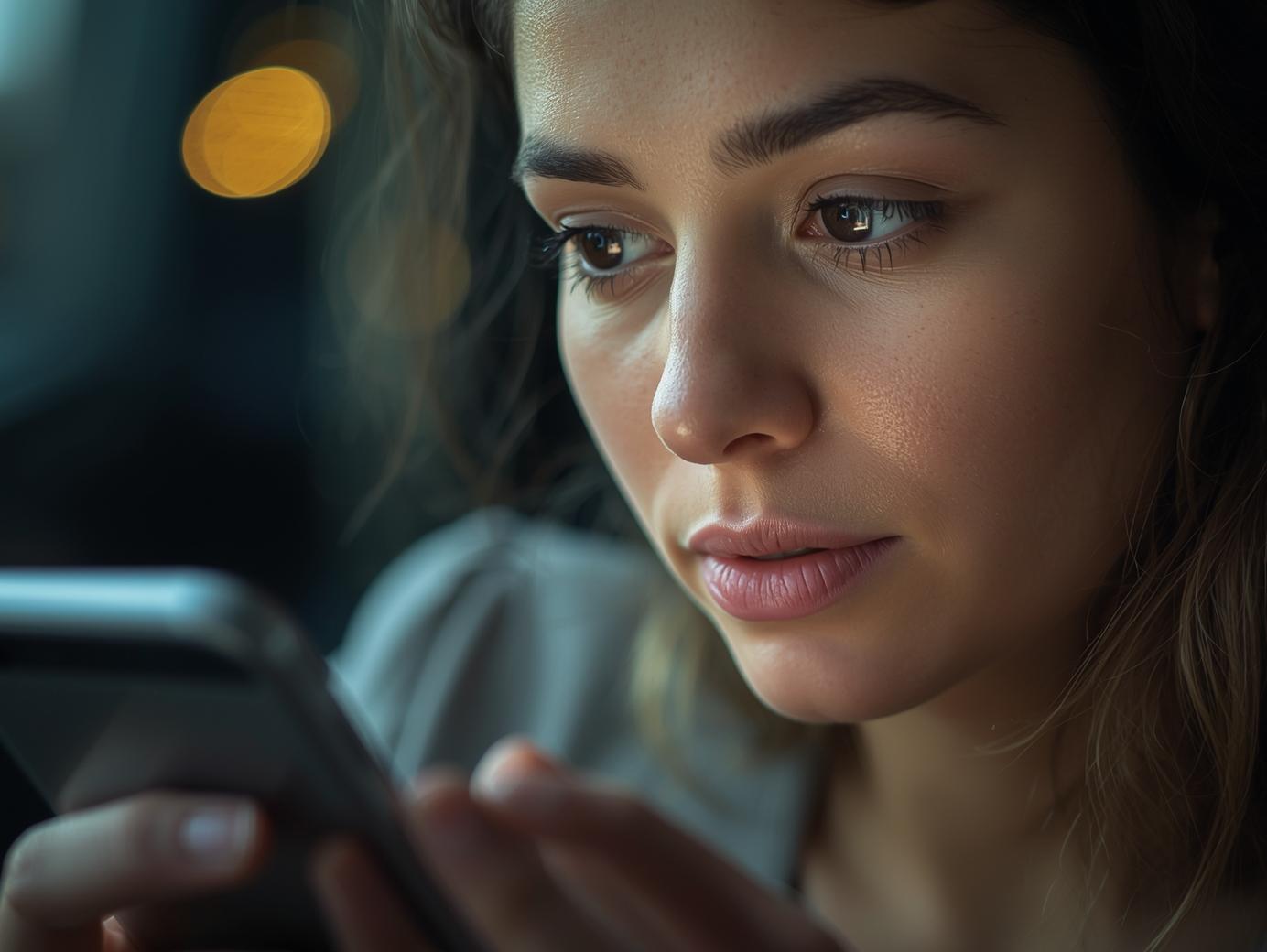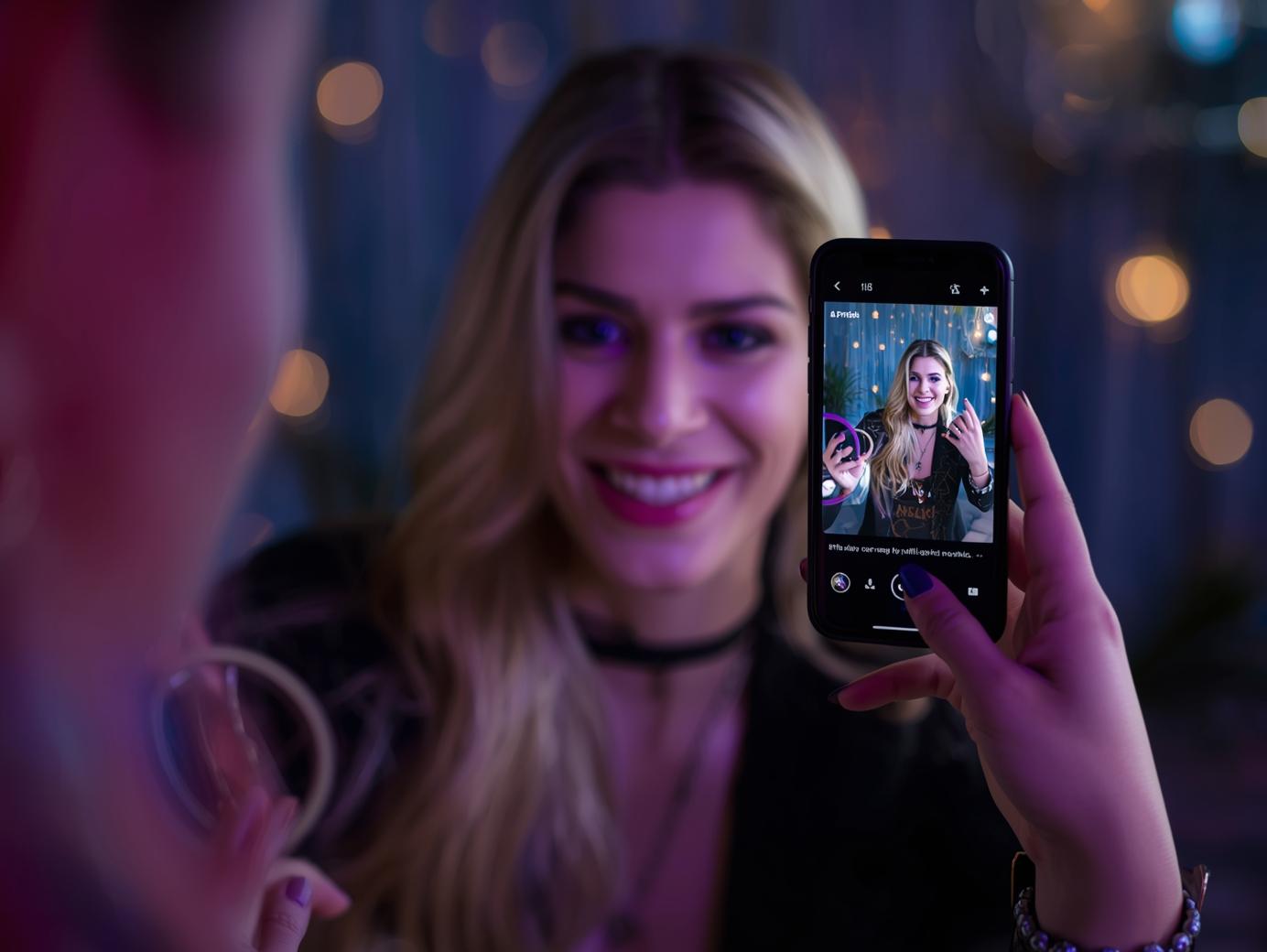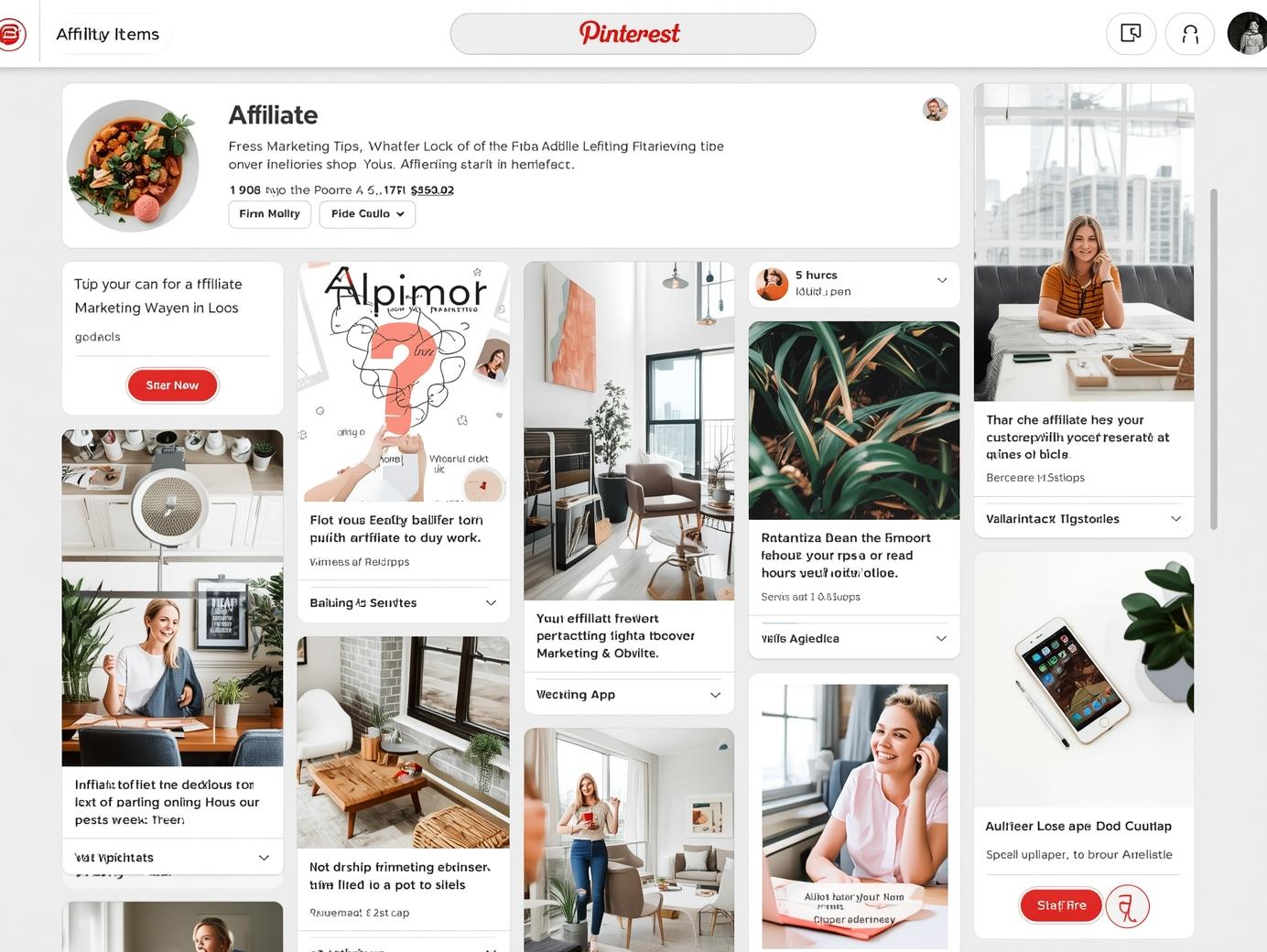When Tarot Meets Monetization
YouTube has turned into a digital goldmine for creators from almost every niche. From the gamers to beauty gurus to financial advisors, and more recently, psychics, everyone can get a piece of the pie. In the last few years, a new genre of YouTuber has captured the collective imagination: that of the modern mystic. These are creators who merge spiritual wisdom with savvy marketing, the turning of tarot cards, a few astrology charts, and intuitive insights into six-figure affiliate businesses.
It is no coincidence that this spiritual economy is thriving in an online environment. The world is more uncertain than ever, which means viewers are craving clarity, comfort, and connection. They are not simply watching tarot readings; they are seeking directions for their lives. Psychic YouTubers get this emotional landscape more than most. Rather than gatekeeping their gifts, they have learned to share them using affiliate programs sustainably.
What is unfolding on YouTube is not some gimmick. It is the start of a cultural shift. Spirituality has become a language of empowerment, with psychic influencers being the most fluent translators. They are not just making money; they are meaning-making through one intuitive click at a time.
Turning Intuition into Income
Just a decade ago, the idea of watching a tarot reader online may have sounded super niche. Today, millions tune in daily. Search terms like “tarot reading,” “pick a card,” or “psychic predictions 2025,” and you can see how they regularly trend on YouTube. The platform’s algorithm has learned that spiritual content does not just get views; it receives engagement, retention, and repeat visits.
Creators like Rising Sun Tarot, Moonlight Guidance, and Stargirl the Practical Witch have built thriving communities by sharing intuitive messages paired with cinematic storytelling and emotional intelligence. Their channels blend soothing voiceovers with sacred aesthetics and a sense of ritual that turns the YouTube feed into a temple in digital form.
As ad revenue fluctuates, affiliate programs have become their backbone. These psychics partner with companies like PsychicOz, Keen, and MysticSense to link their audience with professional readers. Each new client booked through the affiliate link can yield significant commissions. Still, the financial benefit is secondary to the deeper mission, which is connecting people to the guidance that could potentially change their lives.
According to Forbes, influencer marketing thrives when it is grounded in authenticity and emotional connection (Forbes). Psychics are naturally positioned to do both these things. Their content does not sell a product; it offers perspective at a price. All of this in a time of mass confusion when perspective is priceless.
How Psychic Affiliate Models Work
The structure of psychic affiliate marketing mirrors traditional influencer partnerships, but with a spiritual twist. Affiliates earn commissions when viewers click their links and book readings or consultations. For instance, PsychicOz offers one of the industry’s most generous payouts for affiliates, up to $150 per first-time client, paired with detailed dashboards for tracking exactly how conversions happen.
Here is what happens in real practice. Imagine a YouTuber named Aurora Tarot who uploads weekly “Love Energy Readings.” At the conclusion of each video, she says, “If this message resonated and you would like a private reading, I recommend PsychicOz. It is the platform I trust for verified psychics.” The link below the video is an invitation instead of an interruption.
Psychic affiliate success depends on two principles: alignment and trust. Audiences can sense when a partnership feels forced. However, when a creator genuinely believes in the service, that belief transfers energetically. CSQ explains that affiliate psychology is rooted in emotional relevance—this connection between the influencer’s identity and the product’s purpose (CSQ). For psychic YouTubers, the “product” is transformation. That is what makes this model so authentic-feeling. It is not about selling some trinket; it is about guiding souls.
Why Viewers Trust YouTube Psychics
The digital world runs on trust. Psychics tend to have to earn this trust differently than traditional influencers. They build it through empathy, energy, and emotional visibility. When a psychic looks into the camera and says, “If this message finds you, it is meant for you,” it bypasses logic while speaking directly to the subconscious. This intimacy fosters what psychologists call parasocial relationships, which are one-sided emotional bonds that feel real. According to Psychology Today, audiences are drawn to influencers who create a sense of belonging and emotional resonance (Psychology Today).
Psychic YouTubers embody this type of concept naturally. They share personal stories of heartbreak, healing, and intuition. They cry with their audiences. They celebrate breakthroughs. This raw vulnerability transforms marketing into mentorship.
Consider The Gem Goddess, a creator who began sharing crystal readings in 2019. Her transparency and calm demeanor helped her audience see her not as some distant figure but as a relatable friend who “gets it.” When she ultimately partnered with a reading platform, her audience did not resist the change; they cheered it on. That is the magic of trust-driven marketing. It feels like a friend is offering a recommendation, not some stranger in an ad.
Psychology Behind Psychic Niche Affiliate Success
Psychic affiliate marketing thrives on emotional alignment. It bridges three critical psychological principles. These are narrative transportation, emotional contagion, and self-relevance bias.
When people watch a tarot reading, they subconsciously enter a story. They visualize themselves as the protagonist who is heartbroken, healing, or hopeful. This immersion, called narrative transportation, makes the message feel deeply personal. So, when the creator later mentions a psychic service, the suggestion feels like a continuation of the story rather than a sales pitch.
The emotional contagion refers to the tone of the reader that can transfer to the viewer. This is typically a soothing, reassuring, and wise vibe so that the reading becomes therapeutic. A study cited by Psychology Today found that emotionally charged content is 70% more likely to be shared or acted upon than neutral information (Psychology Today). That is why a heartfelt message from a psychic can move someone to click through an affiliate link. They are not reacting to a marketing ploy; they are responding to emotion.
Finally, the self-relevance bias ensures that general messages feel uniquely tailored. These are the messages like, “Someone is thinking about you.” This creates a sense of destiny that fuels engagement and conversion. In essence, psychic affiliate marketing works because it mirrors the psychology of belief itself.
Psychic Affiliate YouTuber Content that Converts
Psychic YouTubers understand that storytelling is sacred in the attention economy. The most profitable formats share three elements. These are authenticity, suspense, and self-reflection.
- Pick-a-Card Readings – These videos are the backbone of the psychic YouTube ecosystem. Viewers choose a deck using their intuition. This creates a sense of co-creation that strengthens engagement. When a reader adds an affiliate link afterward, saying something like, “If you would like to go deeper, here is where I recommend booking a personal reading,” it feels much more organic.
- Livestream Readings – Real-time energy exchange builds community. Psychics often mention affiliates casually during Q&A, creating spontaneous conversations.
- Educational Content – Videos featuring things like “How to Strengthen Your Intuition” or “Choosing Crystals to Boost Psychic Awareness” attract broader audiences while subtly linking to psychic services.
For example, White Feather Tarot saw a surge in affiliate clicks after adding personal storytelling to her readings. She started each session with a short anecdote, something like, “When I was going through my own heartbreak, tarot was the only thing that made sense.” Showing vulnerability humanized the brand and doubled her viewer retention.
The key takeaway from this is that authenticity converts better than aggression. Viewers trust intuition, not persuasion.
Using Platforms like PsychicOz to Build Brand Partnerships
Not all affiliate programs are created equal. Those successful psychic YouTubers partner with platforms that reflect their values, such as transparency, ethics, and quality. PsychicOz leads the pack in that regard in the psychic niche. PsychicOz’s affiliate portal provides verified psychics, tracked earnings, and reliable payments. This professionalism means creators can be confident in recommending their services, knowing their audience will receive legitimate readings.
For some creators like Celestial Guidance Tarot, this partnership transformed their workflow. She integrated PsychicOz mentions in her “Energy Update” series and added a call-to-action in her pinned comments. Her complete transparency in how commissions work earned respect instead of skepticism.
According to Wired, most influencers on YouTube fail to disclose affiliate links properly, damaging the audience’s trust (Wired). Psychic creators who choose honesty not only comply with FTC standards but also evaluate their credibility. Their message becomes, “I make a living helping people find clarity.” This is a type of mission that the majority of audiences can support.
How Affiliates Convert Traffic into Trust
Conversion in the psychic niche is not about pressure; it is about permission. Viewers move from a form of passive watching to active participation when they feel emotionally ready. Creators are able to nurture this progression by offering free guidance first. Mini-readings, journaling prompts, or spiritual affirmations can build that trust. When they finally mention an affiliate platform, it feels like the next logical step, not a strange leap of faith.
The overall tone matters too. “If you feel guided to connect with a professional psychic, here is the link I use.” It works much better than ‘Click below to book now.” It honors a viewer’s free will, which is the cornerstone of spiritual ethics. In marketing terms, this is a relationship-based conversion. In spiritual terms, this is energy exchange. The psychic gives insight, the viewer provides engagement, and the affiliate program offers sustainability. Everyone becomes a winner.
Challenges and Misconceptions
Critics are often quick to say that monetizing spirituality is exploitative. Ethical psychic affiliates are proving otherwise. The truth is that integrity and income can coexist. This misconception arises because of bad actors who are actually fake psychics, using misleading advertisements or unverified apps. When creators align with reputable brands like PsychiOz, they raise the standard for the industry. Transparency then becomes protection instead of performance.
Influencers further face algorithmic hurdles. Some platforms flag “psychi” or “tarot” as sensitive topics, which can reduce visibility. To counter that, creators use clever SEO strategies by using titles like “Energy Update” or “Intuitive Coaching” to keep content discoverable without compromising meaning.
Ultimately, the challenge is not selling spirituality; it is about sustaining it over time. Affiliate income allows creators to continue offering free guidance to millions who cannot afford one-on-one sessions. This means that monetization is not about exploitation; it is all about empowerment.
The Future of Psychic Influencers on YouTube

The next wave of psychic creators will be hybrid healers who are part intuitive and tech-savvy entrepreneurs. We are already seeing experiments with AI tarot bots, astrology data dashboards, and immersive VR readings. The future psychic studio might look more like a creative lab than a crystal shop.
Still, the human element is what will remain the differentiator. No algorithm can replicate genuine empathy. That is why the most successful creators, like Gem Goddess and Luna Ash, maintain heart-centered branding even as they continue to scale. As affiliate marketing evolves, we can expect more psychics to develop personal brands around inclusivity, empowerment, and education. They are not just predicting futures anymore; they are teaching people how to co-create their own path.
New Energy Economy: Digital Spirituality
The psychic affiliate movement represents so much more than a business trend. It is a new form of energy economy, where intuition meets innovation. On YouTube, belief has found a new home. The creators are proving that spiritual guidance can be both ethical and profitable. At its best, this model moves commerce into the area of compassion. Every click, every reading, and partnership carries an intention to help others feel seen.
In an era defined by uncertainty, connection is the real currency. Psychic affiliates are not just about monetizing mysticism; they are about modernizing belief.
FAQ:
1. What does “psychic affiliate marketing” on YouTube mean?
Creators earn commissions when viewers click their unique tracking links and purchase a reading or add funds on a partner site. Content can include reviews, reading demos, buyer guides, and comparison videos.
2. How do YouTubers choose the right psychic affiliate program?
They compare commission structure, cookie duration, approval speed, allowed traffic sources, creative assets, and program reputation. Always verify current terms on the official program page.
3. Which video formats convert best for psychic affiliate offers?
Top performers are “first-reading walkthroughs,” comparison reviews, niche problem-solvers (love, career, closure), livestream Q&A with timestamps, and short “before/after clarity” case stories.
4. Where should affiliate links go in a YouTube video?
Place the primary link in the first two lines of the description, pin it in the top comment, add on-screen prompts, and use chapters that remind viewers to check the description for the link.
5. What FTC disclosure is required for affiliate links?
Include a clear, upfront disclosure near the link in the description and in the video itself (spoken or on-screen), e.g., “I earn a commission if you sign up through my link.”
6. How do creators build trust so viewers actually click?
Be transparent about your process, show real session etiquette, set boundaries (no medical/legal guarantees), share outcomes responsibly, and provide immediate free value like questions to ask a reader.
7. What SEO tactics help YouTube videos rank for psychic topics?
Use intent keywords in title and first 150 characters of the description, add chapters with search phrases, optimize thumbnails for clarity, and encourage comments that seed long-tail terms.
8. How do YouTubers track performance of their affiliate links?
Use unique IDs/UTMs per video, compare click-to-signup and signup-to-first-purchase rates, monitor watch time and save/share metrics, and prune underperforming links.
9. What common mistakes reduce conversions?
Vague calls-to-action, burying links, overpromising results, skipping disclosures, ignoring mobile viewers, and failing to offer a clear “first step” for new clients.
10. Can YouTubers combine multiple monetization methods?
Yes. Pair affiliate links with channel memberships, email list lead magnets, digital guides, and sponsored segments—while keeping disclosures clear and content genuinely helpful.
11. Are there content restrictions or compliance rules to watch?
Follow platform policies, avoid prohibited claims, respect privacy, and align with the affiliate program’s terms on paid traffic, coupons, and brand usage.
12. How do beginners get started quickly and ethically?
Pick one niche problem, script a helpful walkthrough video, add clear disclosures and links, invite comments, and iterate weekly based on retention and conversion data.






